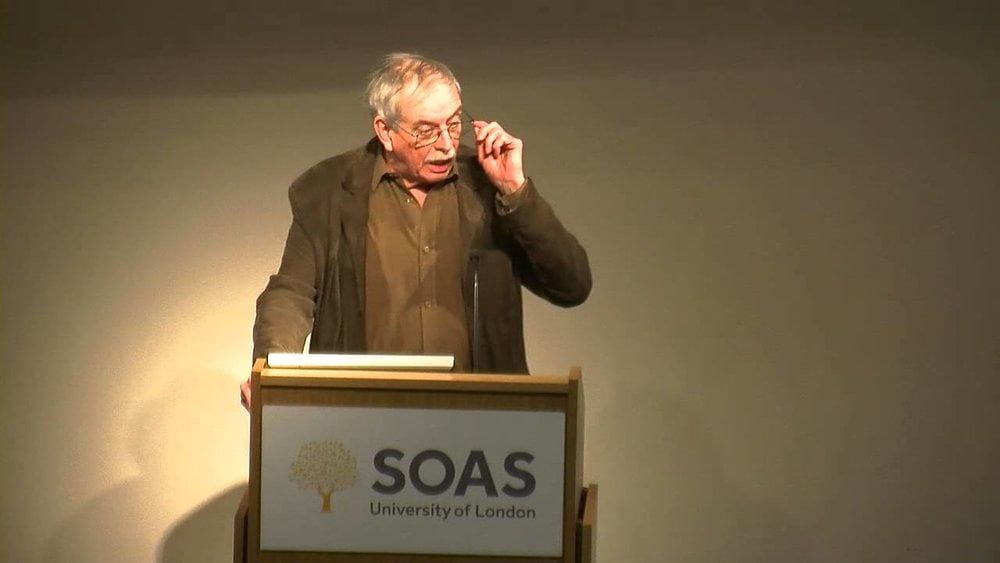Tr[i]umphant Victory
Confounding all predictions (
including my own), on 20 January 2016 the Chief Justice of the US Supreme Court will give the oath of office to President-elect Donald Trump. The shock of the unexpected brought forward instant commentary from across Europe.
For Jeremy Corbyn the Trump victory represented an “unmistakeable rejection of a political establishment and economic system that simply isn’t working for most people”. In a right-wing version of “
a better world’s in birth”, Marie Le Pen tweeted “Their world is collapsing. Ours is being built”.
The regrettable truth is that Le Pen will prove closer to reality. Corbyn is correct to point out that Donald Trump played to the fears and anxieties of those Americans suffering from the many ill-effects of “globalization”. However, the likely consequences of Trump’s victory will be a strengthening of the neoliberal vision of a world economy dominated by corporate capital
.
Echoes from the Past
In May of this year in a London radio interview,
US political expert Jeff Faux warned of the possibility of a Trump victory. While he expected a Clinton victory, Faux pointed out that her campaign promised a variation on the status quo, while Trump promised radical change to
an electorate fed up with America as it is.
For forty years US working class wages have stagnated, in great part as a result of the steady decline of manufacturing employment. It should come as no surprise that the share of American families defined as
“middle class” declined continuously over the same four decades. In the 1930s this combination, impoverishment of the working class and loss of middle class status, was central to creating the political environment for German fascism.
The other element in the rise of intra-war fascism, fear of communism, also has its current counterpart, the emergence of radical Islamic sects. Twentieth century fascists used “Bolshevism” to slander progressives of all varieties. In the same vein Trump repeatedly invoked fears of Islamic radicalism to slander all American Muslims as a Fifth Column undermining a Judea-Christian nation. To deal with this imagined threat he advocated a
“total and complete” ban on Muslims entering the United States.
From the outset of his presidential bid, the mainstream media characterized Trump’s appeal as “populist”, a vague but pejorative term rarely defined. The typical
dictionary definition of “populism” describes it as “a political party claiming to represent common people”, based on a belief in “the wisdom and virtue of the common people”. By this definition almost every political party qualifies as “populist”, since it is unlikely that any would deny that they represented the common people or considered them without wisdom or virtue.
In practice the media employs the term, often explicitly, to mean a politician or party that appeals to the “worst instincts” of not the people as a whole but the lower classes of society. This use of “populism” treats the lower class masses as capricious and volatile, vulnerable to the inflammatory rhetoric of demagogues. In effect the common use of “populism” locates the success of demagoguery in the ignorance and lack of sophistication of the lower classes.
In the specific case of Donald Trump, his opponents and the media attribute his unexpected success not to the failure of the US political and economic system but rather to the reaction of the lower classes to that failure. Thus, the central narrative of the Trump phenomenon locates him as an aberration taking opportunistic advantage of the gullible losers of globalized economy.
By this interpretation Bernie Sanders would also fall under the populist label, another politician appealing to the unsophisticated and volatile masses. From the mainstream perspective, especially the media, Trump and Sanders represented different side of the same populist coin, offering simplistic solutions to complex problems, one from the Right, the other superficially of the Left. From the perspective of the elites, they share the same sin, rejection of neoliberalism (apparent rather than real in Trump’s case).
As used by the mainstream populism is a term to justify the political status quo. It is a defence of the infamous “middle ground”, tainting all challenges to the neoliberal “consensus” as cynical and simplistic opportunism.
What it Means
The Trump victory is not the rejection of neoliberalism but the necessary outcome of the neoliberal transformation. Since Jimmy Carter in 1976 the Democratic Party has elected neoliberals to the presidency. Each successive Democratic president extended and deepened the neoliberal transformation of the US economy, weakening worker and trade union rights, facilitating the decline of manufacturing, and perhaps most important, eliminating constraints on the financial sector.
From 1932 through 1968 the Democratic Party won seven of nine presidential elections based on the New Deal coalition of the “solid South” and the northern working class. The
Civil Rights Act of 1964, resolutely championed by southerner Lyndon Johnson, lost the Democrats the South (as
Johnson himself predicted). The neoliberal transformation initiated by Carter would alienate the working class. The legacy of the Civil Rights Act would prove key to the election of the next two Democratic presidents, Bill Clinton and Barak Obama, as working class support for Democrats declined.
Pursuing essentially the same economic agenda, the Republican Party differentiated itself through increasingly overt racism. Richard Nixon’s “
southern strategy” (1968), Ronald Reagan’s “
welfare queens” and George W. H. Bush’s
overtly racist slander of Democrat MichaelDukakis (1988) firmly established the Republican Party as the putative champions of white privilege. However, as working and middle class incomes continued to decline, the combination of racism and deregulated capitalism have become less effective in attracting votes.
By pursuing the same economic agenda the elites in charge of both the Democratic and Republican Parties rejected the interests of the vast majority of Americans. Rising inequality of income and wealth continuously deleted the ranks of globalization’s winners. Clinton’s defeat of Sanders implied that yet again that the Democrats must go to the well of “identity politics” for a victory strategy.
By 2016 erosion of the living standards of a majority of Americans meant that neither the Democratic nor the Republican version of deregulated capitalism had a constituency outside the elite. Trump, analytically or instinctively, realized that maintaining the economic status quo required a new strategy, a campaign against democracy itself.
In the 1930s Franklin Roosevelt, from one of America’s wealthiest families, recognized that to be democratic a capitalist system had to deliver material well-being to a majority of citizens. He constructed an effective electoral coalition, fatally flawed in the long run because of its
southern racist component, and used it to limit the extreme abuses of capitalism.
Trump has no intention of limiting the abuses of capitalism, having innovatively engaged in extending and intensifying them. This leaves only one apparent way to maintain neoliberalism with all its destructive excesses, by restricting democracy. The superficially more respectable Republican politicians laid the ground for authoritarian rule by nullifying the protections of voter rights at the national, state and local levels.
Fulfilment of the neoliberal transformation to unregulated capitalism is incompatible with electoral democracy. A polity can have one or the other but not both. The dark genius of Donald Trump lies in following that incompatibility to its logical conclusion – if his brand of capitalism and electoral democracy conflict, undermine democracy.
John Weeks is Emeritus Professor of Economics at SOAS, University of London. You can follow him on Twitter @johnweeks41






